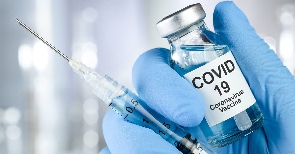Even before the world could find a vaccine for coronavirus, a lot of conspiracy theories had been churned out on many platforms including social media. From altering DNAs to enlarging the male sexual organ, misinformation peddlers would not stop at anything to make sure people rejected the vaccines. The misinformation on vaccines became alarming when the World Health Organization (WHO) and partners started rolling out the vaccines.
In all of this, one of the most circulated claims on social media about the vaccines is that relating to fertility. Several social media users have shared messages regarding this with no particular source cited. Some of them have claimed that men and women who have the intention of getting pregnant in future should not take the vaccine as it may make them sterile and infertile.
Aside from these social media claims, other people have concerns on the safety of the vaccines in relation to fertility.
In this report, we find out what experts say about the vaccines and fertility in both men and women.
Will an approved COVID-19 vaccine make one infertile?
The general safety of approved COVID-19 vaccines has already been established by the WHO. The organization has indicated that “before receiving validation from WHO and national regulatory agencies, COVID-19 vaccines must undergo rigorous testing in clinical trials to prove that they meet internationally agreed benchmarks for safety and effectiveness.”
The American College of Obstetricians and Gynecologists, the American Society for Reproductive Medicine, and the Society for Maternal-Fetal Medicine have indicated that it is scientifically unlikely for any of the approved vaccines to cause fertility loss in women.
“While fertility was not specifically studied in the clinical trials of the vaccine, no loss of fertility has been reported among trial participants or among the millions who have received the vaccines since their authorization, and no signs of infertility appeared in animal studies. Loss of fertility is scientifically unlikely,” the three organizations said in a joint statement.
Although the America Center for Disease Control and Prevention (CDC) has stated that scientists are still studying the vaccines for side effects; there is currently no evidence that any vaccines, including COVID-19 vaccines, cause fertility problems in humans.

Do you need to delay getting pregnant after vaccination?
Furthermore, the American College of Obstetricians and Gynecologists has also indicated that people do not need to delay getting pregnant after getting a dose of the vaccine as “there is no evidence that the COVID-19 vaccines cause infertility.”
According to another publication by University of Chicago School of Medicine, women can still go ahead and take the second dose of the vaccine even after finding out they are pregnant after the first dose. According to the publication, the “only possible risk physicians are currently aware of with the vaccine is the possibility of a fever following the second dose, a side effect experienced by around 10-15% of vaccine recipients.”
Is it safe for pregnant women to be Vaccinated?
Although pregnant women were excluded from the trials of all the approved COVID-19 vaccines even though the Society for Maternal-Fetal Medicine and the American College of Obstetricians and Gynecologists had insisted that they be included, studies have so far shown that the vaccines are safe for pregnant women.
Nonetheless, a publication by WebMD suggests that Pfizer, one of the pharmaceutical companies producing COVID-19 vaccines, is studying its two-dose vaccine in 4,000 pregnant and breastfeeding women to see how safe the effects of Covid-19 vaccines are. The report further says that the researchers will also look at how safe the vaccine is for infants and whether mothers pass along antibodies to children. Results of this study are expected to be ready by the end of year, according to the report.
On their website, Pfizer has also indicated that although there is evidence that a very short amino acid sequence in the spike protein of SARS-CoV-2 that is partly shared with a protein in the placenta called syncytin-1 is likely to occur after getting a shot; Pfizer says it is scientifically unlikely for that process to cause infertility.
Is it safe for lactating Women to Be Vaccinated?
Yes. Experts at the American College of Obstetricians and Gynecologists say it is safe for breastfeeding women to get the vaccine. According to them “there is no need to stop breastfeeding if you want to get a vaccine. After you get vaccinated, the antibodies made by your body can be passed through breastmilk and can help protect your child from the virus.”
While studies are still being done on the effects of COVID-19 Vaccines, reputable health agencies such as the CDC and American College of Obstetricians and Gynecologists have indicated that none of the vaccines rolled out so far has been found to make men and women infertile.
- Commonwealth countries must create 5,000 jobs everyday till 2030 - Foreign Affairs Minister
- Use COVID-19 fund to strengthen health care, immunization financing — HFFG
- Parliament records a new case of coronavirus
- Breach of coronavirus safety protocols: GMA calls for action
- Chadians line up for Sinopharm as coronavirus vaccination campaign begins
- Read all related articles













